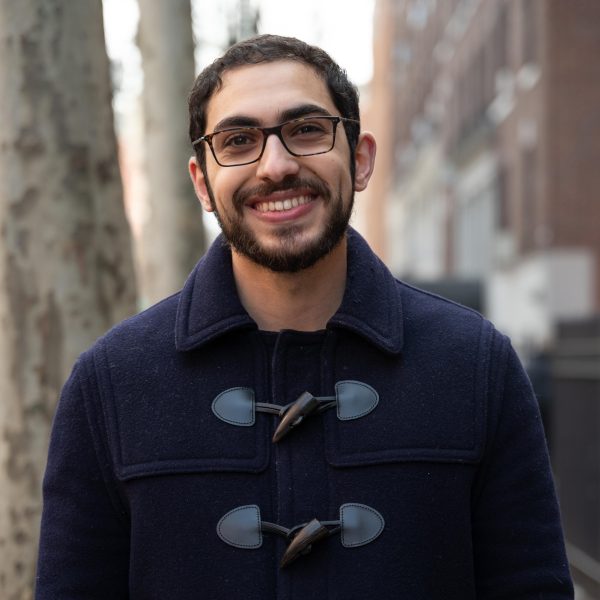The Soapbox: Argentina’s economy, Italy to ban lab-grown foods, UAE royalty
The Soapbox is a weekly column by WSN covering major news developments at NYU’s campuses and study away sites abroad. Global consciousness for a global university.
The Soapbox is a weekly news column rounding up stories worth reading for a global university. (Staff Illustration by Susan Behrends Valenzuela)
March 31, 2023
At the White House, Argentinian president renegotiates country’s debt
Argentinian president Alberto Fernández visited the White House on Wednesday in an attempt to increase his country’s $44 billion loan from the International Monetary Fund.
In his meeting with President Joe Biden, Fernández said that Argentina recently experienced its “worst drought since 1929,” which has caused serious damage to Argentina’s agriculture industry over the last few months. The drought has resulted in the loss of $14.14 billion in soybean and corn production and $20.5 billion in total export losses, according to the Rosario Board of Trade. The Argentinian president also said that the war in Ukraine has negatively impacted the country’s economy.
Last year, the IMF reached an agreement with Argentina for a $44 billion loan following a failed $57 billion agreement in 2018. Fernández hoped that the United States, which has veto power in the IMF, will support the country’s request to revise the debt agreement.
Biden and Fernández also discussed the Chinese government’s plans to construct two nuclear plants in Buenos Aires, which Biden has criticized. While Biden did not directly address Argentina’s request to increase its loan from the IMF, he said the meeting was an opportunity to strengthen economic ties between the two countries.
“We have an enormous opportunity to increase our economic interchange, our economic integration on everything from clean energy to critical minerals to technology to security,” Biden said at the meeting, according to the Associated Press.
In Italy, government approves bill banning lab-grown foods
Italy’s right-wing government proposed a bill on Tuesday that would ban laboratory-grown and lab-produced foods. The bill is a part of an effort to “safeguard” Italy’s heritage, according to Italian health minister Orazio Schillaci.
The bill, which still needs to be passed in the country’s parliament, would introduce fines of up to nearly 60,000 euros for those who produce, export or import synthetic foods derived from animal cells, including artificial meat.
Schillaci also said that “there are no scientific studies yet on the effects of synthetic foods” and that the country wants to maintain its agriculture based on the Mediterranean diet. Francesco Lollobrigida, the minister of agriculture, food sovereignty and forests, said that lab-produced foods pose a risk to the country’s traditions, according to Reuters.
Giorgia Meloni, who was elected Italy’s prime minister in October 2022, pledged to protect Italy’s food from technological innovations and said her new coalition will focus on homegrown products. The right-wing coalition said that it proposed the ban to protect the health of the country’s citizens.
The proposal was met with criticism from organizations that support cell-based products and animal rights groups throughout Europe. Riccardo Magi, the leader of the left-wing party Più Europa, accused the government of creating a “new crime” and that the ban on lab-grown foods will only exacerbate pollution and result in the loss of more animal life.
“This time they are taking it out on synthetic food and prefer to continue with their reckless prohibition instead of doing research and developing a technology that could allow us to pollute and kill less,” Magi said to The Guardian.
In the UAE, president appoints son as crown prince
Mohammed bin Zayed Al Nahyan, the president of the United Arab Emirates and a member of the Nahyan royal family, appointed his eldest son, Khaled, as crown prince of Abu Dhabi and heir to the nation on Wednesday. In a separate announcement, Mohammed bin Zayed appointed his brother Mansour bin Zayed Al Nahyan as vice president of the UAE and his other brothers Tahnoun bin Zayed Al Nahyan and Hazza bin Zayed as deputy rulers of Abu Dhabi.
Mohammed — who became the de facto ruler of the Emirate of Abu Dhabi in 2014 — was elected president of the UAE by the Federal Supreme Council last May after his half-brother Khalifa bin Zayed Al Nahyan, who had also ruled Abu Dhabi, died from a stroke.
Khaled, who was announced as crown prince by the Emirates News Agency, was previously appointed chairman of both the federation’s intelligence agency and the Abu Dhabi Executive Office. Mohammed’s decision to appoint his son as the crown prince of the country’s oil-rich capital mirrors decisions made by most Arab monarchies, including Saudi Arabia, in which King Salman appointed his son Mohammed bin Salman as the country’s prime minister last September.
Over the years, Mohammed bin Zayed has been “grooming” Khaled for authoritative government positions, including in security and intelligence. During Mohammed bin Zayed’s time as the country’s de facto leader, the UAE normalized ties with Israel in 2020 and also deepened its ties with Russia and China, according to Reuters.
Contact Yezen Saadah at [email protected].

























































































































































